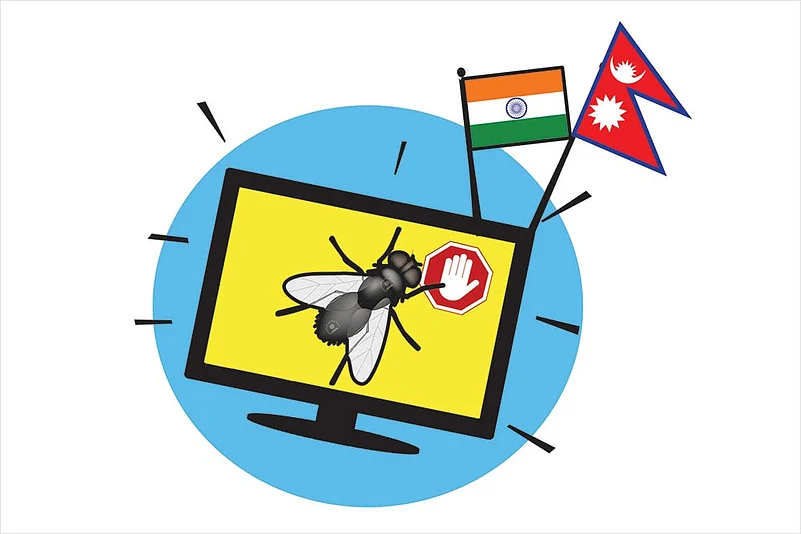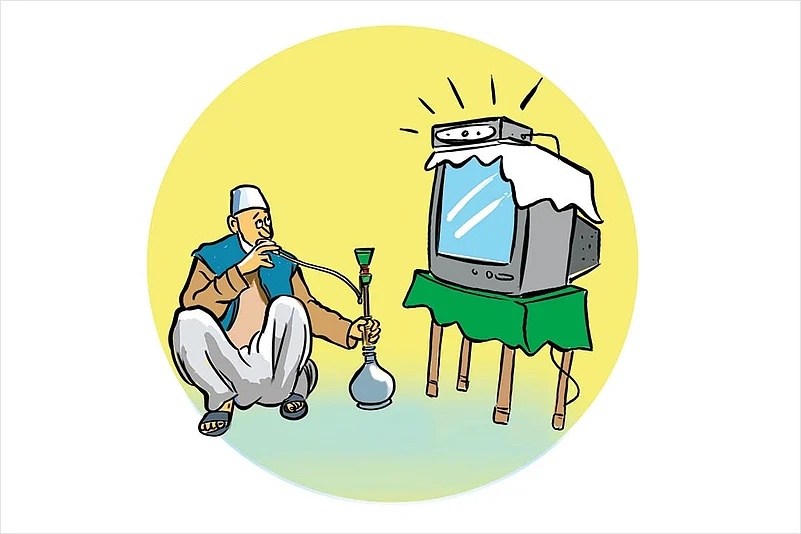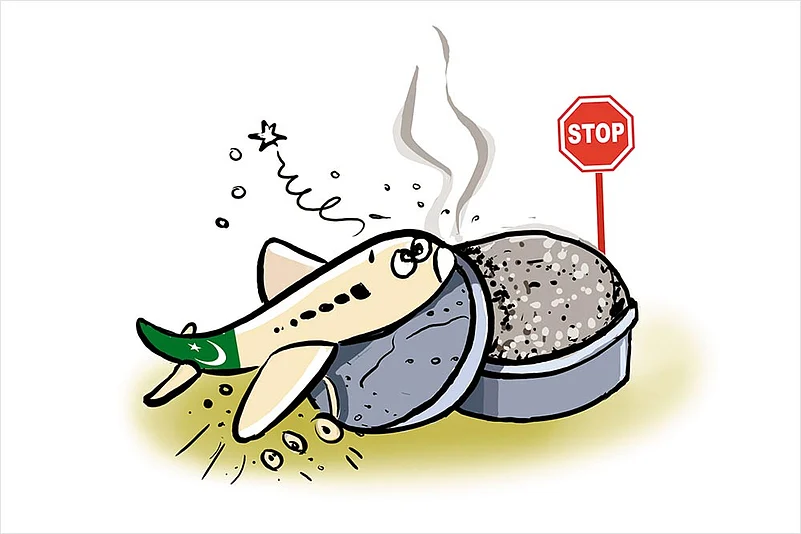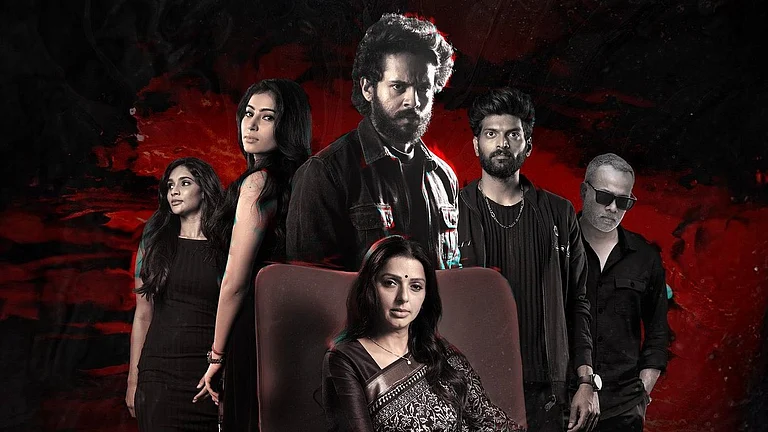Churches Feud, Corpses Freeze
A century-old dispute between two Christian factions in Kerala has had an unintended fallout for the faithful—they sought recourse to a court order to bury their dead and in one peculiar case, ended up preserving a body in a hospital freezer while awaiting the verdict. After the death of 84-year-old Mariyamma Philip on July 3, her family wanted to inter her at the cemetery next to the Kadeesa Orthodox Cathedral in Kayamkulam. However, she belonged to the Jacobite sect of the Malankara church. The Orthodox faction, which controls over 1,100 churches, harked backed to the 1934 constitution of the Malankara church to assert its rights over the cemetery. Eight days after Mariyamma’s death, the family withdrew the case and buried her on a plot belonging to the Jacobites.

Saas, Bahu & Static
Indian TV is wildly popular in Nepal. But viewers in the Himalayan republic might not be able to see a woman turn into a fly in Sasural Simar Ka and other such Indian idiot box gems, thanks to a proposed bill prohibiting foreign channels from broadcasting advertisements. Indian channels say they will have to stop transmission as a clean feed would be economically and technically unviable. Fearing a potential revenue loss, cable operators took Indian channels off air for 24 hours in protest against the government’s move. Is TV even worth watching without perpetual scheming, histrionics and reaction shots? The nation of Nepal wants to know!

Only Good Reviews Please
Tamil films have been suffering a spate of bad reviews. So, producers decided to end the bad press once and for all—not by striving to make better movies, but by threatening to take legal action against critics who “cross all limits”. Such critics won’t be invited to film releases as well. “It’s not a swipe at print journalists,” explained Diamond Babu, a public relations officer with the industry. “But these days, every Tom, Dick and Harry is doing a film review and they’re wounding people with their comments.” Clearly, that’s a terrible thing to do, which is why Mr Babu and his peers decided to wound reviewers with legal action.

Sandese Aate Hain…From Pakistan
The latest casualty of the tension between India and Pakistan are cross-frontier television signals. Residents in border regions of J&K often rely on antennas because cable operators do not provide services in those rugged terrains. The antennas pick signals from enemy channels and consequently, Pakistani soaps have a remarkable fan-following in these areas. To remedy this, the information and broadcasting ministry seeks to distribute 30,000 Doordarshan set-top boxes, which will beam 100 free channels in 10 districts along the LoC. By providing the gadget gratis, the government hopes to help people avoid “undesirable channels not approved by the ministry” and provide “a better alternative”.

No Highs In Pakistani Flights
You can’t take Black Cobra, Double Sher, Bichoo, Black Cat, Teetar and Mor on flights in Pakistan. Nope, not because they’re wild animals; they are brand names of naswar, a kind of snuff popular across the country. This poor man’s drug is concocted from cured tobacco leaves, wood ash and calcium oxide. However, aviation authorities have banned it on flights, depriving travellers of halal highs at high altitudes.
Shotgun Firing Again
After quitting the BJP, Shatrughan Sinha seems to be at unease with his new refuge—the Congress. His disenchantment with the party began soon after he joined. He had sought a contest with Modi in Varanasi, a move that would have boosted his profile despite an assured defeat. But Sinha was forced to stick to his traditional Patna Sahib that he lost. After the poll debacle, Sinha had hoped for a substantial political role in the Congress. But the party’s continuing leadership crisis has not let this happen either. Sinha has been getting restless—his declarations of praise and support after Navjot Sidhu’s resignation seem to echo his own frustration.
Relentless Setbacks
Nothing went right at the launch of Yashwant Sinha’s autobiography, Relentless, in Delhi on July 15. The broadcast was derailed because of television partner HTN Tiranga TV’s winding down of operations. Next, the hour-long panel discussion, to be moderated by a miffed Barkha Dutt, was cut short to 20 minutes because MP Shashi Tharoor arrived late. The Q&A session was scrapped. An irritated Sinha underscored how punctuality was never a priority in India. Any last straw? After Pranab Mukherjee launched the book, the sound system failed.

Silence! We Are Dissenting
Political factionalism and ideologies of key players in the Nepalese cabinet are adversely affecting the Oli government’s foreign policy. It has resulted in conflicting signals on key diplomatic issues that are threatening to strain Kathmandu’s relations with a number of countries, including India.
In February, when Prime Minister K.P.Sharma Oli was in Davos for the World Economic Forum, Pushpa Kumar Dahal ‘Prachanda’, the co-chair of the ruling Nepal Communist Party, issued a statement extending support to the embattled Venezuelan government. He topped it up by denouncing the US for its meddling in the Latin American country. Predictably, the US embassy in Kathmandu sent a diplomatic note to the government to enquire whether Prachanda’s statement reflected the government’s views. But the foreign ministry in Kathmandu decided silence was the best option. Kantipur newspaper claimed that the tussle with the Americans dragged on for months.
A few weeks later, another diplomatic faux pas came to the fore. The Indian embassy in Kathmandu wanted to seek clarification on the mandatory labour permits for Indians working in Nepal. But though a diplomatic note was sent, the foreign ministry yet again decided to not reply.
“If we look at the pattern in which the state is functioning, the government appears to have lost control over various state mechanisms,” former foreign minister Ramesh Nath Pandey told the media.
In another incident last month, the foreign ministry did not reply to the US embassy after an American citizen was refused entry into Nepal because he was suspected of being an agent of the Dalai Lama. Nepali immigration officials, under pressure from the Chinese embassy in Kathmandu, had deported the wrong man with the same name. The US embassy asked for clarification from the ministry of foreign affairs, only to be met with resounding silence.
“How can they reply?” noted Pandey. “They can neither admit that they were misled nor can they say they acted under Chinese pressure.”
Oli issued a series of statements, claiming to have not been informed about certain issues. This has prompted concern about the prime minister’s aloofness, lack of communication and leadership abilities.
“If the PM repeatedly says he is being kept in the dark, it is a serious matter,” says Devi Ram Sharma, former chief of the country’s intelligence agency. “It is embarrassing for the nation and the prime minister.” Indeed. Hope Oli is listening.
Illustrations by Saahil; Text Curated by Puneet Nicholas Yadav and Alka Gupta


























